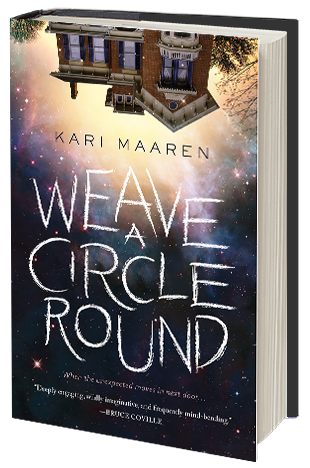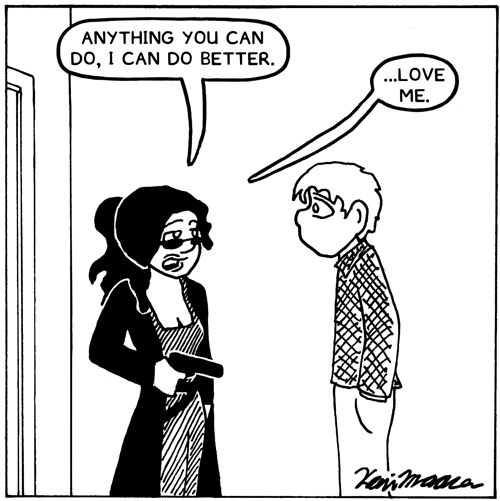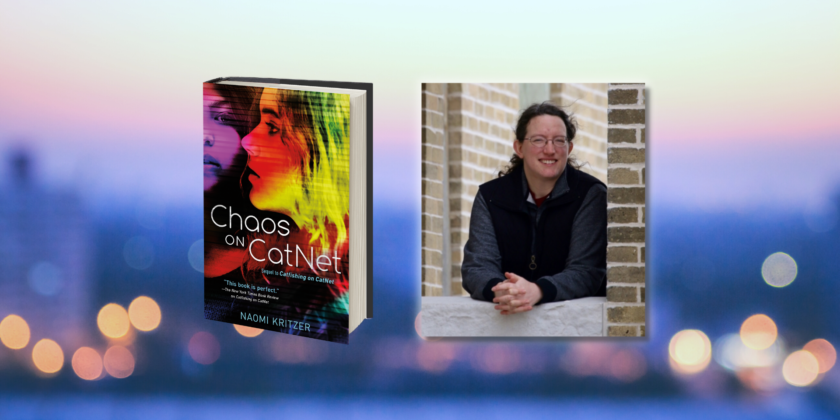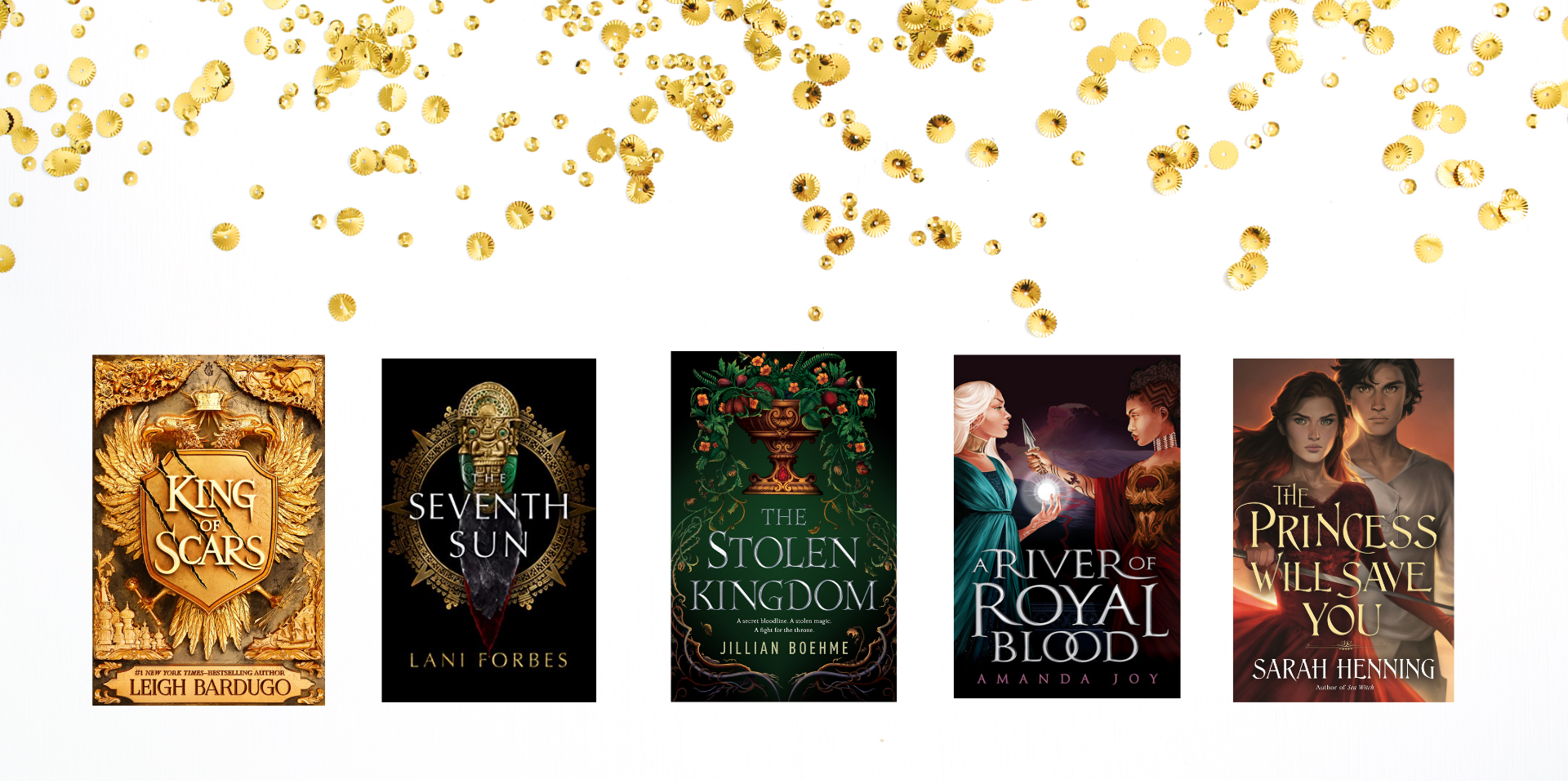
Written by Kari Maaren
There is a character we’ve all encountered in various works of fiction. She’s most noticeable in films, but she turns up in books too. She’s talented, intelligent, driven, and practised at skills that few ever master. Everyone who meets her is awed by her. Women want to be her. Men want to win her love. In a world defined by mediocrity, she shines.
And we very much need to get rid of her, preferably yesterday.
 Now that I’m done being dramatic, here’s the thing:
Now that I’m done being dramatic, here’s the thing:
This character is not the protagonist of her story. I sometimes call her the More Competent Female Sidekick, or the MCFS, an acronym as awkward as she is. She’s Wyldstyle and Trinity and Hope Pym and yes, sorry, even Hermione Granger, though I love Hermione with a terrible fierceness. Admittedly, Hermione’s a little different, so I’ll save her for later. The others are all essentially the same character: the ultra-competent woman who has trained for years so she can pave the way for the coming of the Chosen One. She may be resentful at first of this blundering man who apparently has to save the world—something she’s been working towards her entire life—but he eventually wins her over by becoming even better than she is at some essential world-saving skill in a fraction of the time. At that point, he gets to sleep with her. She starts out as the hero’s trainer and ends as his reward.
In a way, the MCFS is a mark of progress. She’s a variety of helper figure, a type of character who’s been around for a long time; however, outside of fairy tales and various medieval romances in which helpful but acerbic maidens wander around goading heroes into action, she’s pretty recent as a trope. The idea of a man learning from a really skilled woman is one that probably seemed quite novel not all that long ago. Popping a woman into the mentor role allows writers to kills a few birds with one stone: they have an important female character, she isn’t a helpless damsel, there’s room for her to develop, and she can hold her own against the boys. When you’re emerging from a cultural landscape in which fictional women, even the spunky ones, spend a lot of time getting kidnapped by dastardly villains, the MCFS is a bit of a revelation. She’s powerful! She’s confident! She has pretty hair!
 Yet she still gives way to the male protagonist. Her awesomeness is, ultimately, there for him: at first so she can train him, and later so she can be his prize. She’s great, but he’s better. He deserves her.
Yet she still gives way to the male protagonist. Her awesomeness is, ultimately, there for him: at first so she can train him, and later so she can be his prize. She’s great, but he’s better. He deserves her.
It’s easy to heap scorn on this character, but I do think she’s necessary…to a point. She eases us towards comfort with an actual female protagonist who isn’t anyone’s prize. Such female protagonists exist, and they’re becoming more common, but we’re still at a point where whenever a Rey pops up, certain people are going to be apoplectic that she’s not a Ray. To be honest, when I saw the first ads for The Force Awakens, I was assuming Rey was going to be an MCFS. I was pleasantly surprised that she wasn’t. We’re now as used to the female mentor/prize as we once were to the damsel in distress; she’s become a comfortable cliché. Maybe that’s a sign that useful as she is, it’s time to let her go.
Hermione shows us why. Hermione isn’t quite your typical MCFS. She is, for one thing, one of two major sidekick characters, the other of whom is male. She’s vastly more competent than Ron and reasonably more competent than Harry, but she willingly lets Harry have the glory. Her competence is also accompanied, refreshingly, by quite a lot of incompetence. Hermione is brilliant and talented, but she also has flaws that are more than superficial and that sometimes cause just as many problems as Harry’s own flaws. The MCFS’s lack of flaws tends to be just as glaring as her possession of talents, and it’s a problematic element, as her “strength” replaces her humanity. Hermione lacks the MCFS’s infallibility. Critically, she isn’t Harry’s prize, though she can certainly be seen as Ron’s. Harry does admittedly get Ginny as a prize, and Ginny is certainly a bit of an MCFS herself, but Hermione has a potential for roundness and development that damn near makes her into a protagonist.
Except she isn’t. Harry is. Hermione is still just the helper, even if we imagine her to be more.
The MCFS was once necessary. Now she’s getting in the way. Our expectation that girls and women belong in secondary roles—that helping and later loving the all-important Chosen One is the best a kickass magic lady ninja warrior can hope for—has become a barrier. Why are we complaining? We have Trinity. Isn’t she awesome? What…we want something more than awesome? Why are we so greedy? If Trinity were the protagonist, how would male viewers be able to identify with her? This way, everyone’s happy.
Ideally, we’ll eventually hit a point where there are enough female protagonists around that the occasional MCFS will seem an interesting bit of variety. Right now, though, our reliance on this trope has morphed from a stepping stone into a crutch. Sorry, Trinity. Your outfits are amazing, and I too would like to be able to run up a wall, but it’s time for you to get out of the way.
Order Your Copy:
Follow Kari Maaren online on Twitter (@angrykem), Facebook, or on her website.







